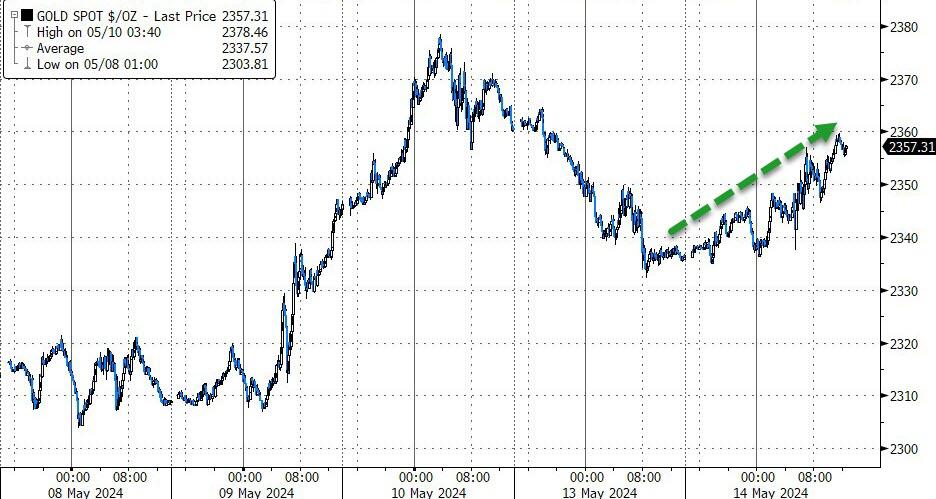Porsche's Tightrope Walk: Navigating The Luxury Market Between Ferrari And Mercedes During Trade Disputes

Table of Contents
The Fierce Competition: Porsche vs. Ferrari vs. Mercedes-Benz
The luxury car market is a battleground of iconic brands, each with its unique identity and customer base. Ferrari represents the pinnacle of exclusivity, its racing heritage and astronomical price point attracting a clientele seeking unparalleled prestige. Mercedes-Benz, on the other hand, boasts a vast model range, cutting-edge technology, and unparalleled brand recognition, appealing to a broader spectrum of high-net-worth individuals. Porsche occupies a fascinating middle ground, expertly blending sportiness and performance with a touch of refined luxury. This delicate balance allows Porsche to attract customers seeking a powerful driving experience without the extreme price tag or exclusivity limitations of Ferrari.
- Ferrari: Exclusivity, racing heritage, high price point, limited production runs. Their marketing emphasizes unparalleled performance and a sense of belonging to a very exclusive club.
- Mercedes-Benz: Wide model range, technological advancement, strong brand recognition, encompassing luxury sedans, SUVs, and performance vehicles. Their strategy targets a broader market with diverse needs and price points.
- Porsche: Sportiness, performance, balance of luxury and driving experience, strong brand loyalty. Porsche’s marketing strategy focuses on the driving experience and a sense of refined athleticism.
Porsche’s success lies in its ability to carve out a unique niche. While it doesn't possess the exclusive cachet of Ferrari nor the sheer breadth of Mercedes-Benz's offerings, it cultivates a strong sense of brand loyalty by offering a compelling blend of performance, luxury, and practicality. This careful positioning is crucial in its tightrope walk between these two industry giants.
Impact of Trade Disputes on Porsche's Global Strategy
Global trade disputes, characterized by tariffs, sanctions, and fluctuating exchange rates, significantly impact the luxury car market. These disruptions create ripples throughout the supply chain, impacting everything from the cost of imported parts to the accessibility of international markets. For Porsche, a global player with a complex supply chain, these challenges are particularly acute.
- Increased manufacturing costs: Tariffs on imported components, such as specialized electronics or materials, directly increase production costs, potentially squeezing profit margins.
- Challenges in exporting vehicles: Sanctions or trade restrictions in specific regions can limit market access, reducing potential sales and revenue.
- Impact on pricing strategies: To offset increased costs or navigate market fluctuations, Porsche may need to adjust pricing strategies in affected markets, impacting competitiveness and profitability.
Porsche mitigates these risks through proactive strategic planning. This includes diversifying its sourcing of parts, investing in local production facilities in key markets, and actively engaging with governments and regulatory bodies to advocate for fair trade practices.
Porsche's Strategic Responses: Maintaining Market Share and Profitability
To maintain its competitive edge and profitability, Porsche employs a multifaceted strategy built on innovation, targeted marketing, and diversification. The brand's significant investment in electric vehicles (EVs), such as the Taycan, signifies a commitment to future technologies and sustainability.
- Product Diversification: The expansion into SUVs like the Cayenne and Macan has broadened its appeal and significantly contributed to overall sales. The addition of EVs further diversifies its product portfolio.
- Investment in R&D: Continuous investment in research and development ensures Porsche stays at the forefront of automotive innovation, providing cutting-edge performance and technology.
- Targeted Marketing Campaigns: Porsche employs sophisticated marketing strategies targeting specific demographics, effectively communicating the brand's values and unique selling propositions.
- Strategic Partnerships and Collaborations: Partnerships with technology companies and other industry players can drive innovation and open new avenues for growth.
These proactive strategies demonstrate Porsche's adaptability and commitment to remaining competitive in a rapidly evolving market. The successful integration of EVs, in particular, positions Porsche for long-term growth in the face of increasingly stringent environmental regulations.
Analyzing Porsche's Future in the Luxury Market
Porsche faces both challenges and opportunities in the future. The rise of Chinese luxury car brands and the ongoing shift towards electric and autonomous vehicles present significant hurdles, but also potential avenues for growth and collaboration.
- The Rise of Chinese Luxury Car Brands: The emergence of strong Chinese competitors will intensify competition, necessitating continuous innovation and refinement of Porsche's product offerings and marketing strategies.
- The Shift Toward Electric and Autonomous Vehicles: Embracing this shift through strategic investments in EVs and autonomous driving technologies will be crucial for remaining competitive.
- Brand Loyalty and Customer Experience: Maintaining and fostering brand loyalty through exceptional customer experiences will be critical in a market characterized by intense competition.
Porsche's ability to successfully navigate these complexities will largely depend on its capacity for innovation, its agility in adapting to market trends, and its consistent focus on delivering an exceptional customer experience. Its future success hinges on a continued focus on both performance and sustainability, and a willingness to embrace new technologies.
Navigating the Future – Porsche's Continued Tightrope Walk
Porsche's position in the luxury car market remains dynamic and challenging. The brand's strategic responses—diversification, technological innovation, and targeted marketing—are essential for navigating the competitive landscape and mitigating the risks posed by global trade disputes. The brand's future success depends on its ability to maintain its unique identity, adapt to technological advancements, and continue delivering exceptional vehicles and customer experiences. Join the conversation on Porsche's tightrope walk – share your thoughts on its future prospects and strategies. [Link to Porsche News] [Link to Automotive Industry Discussion Forum]

Featured Posts
-
 Us Credit Downgrade Impact On Dow Futures And Dollar Live Analysis
May 20, 2025
Us Credit Downgrade Impact On Dow Futures And Dollar Live Analysis
May 20, 2025 -
 Record Breaking Numbers Snls 50th Season Wraps Up
May 20, 2025
Record Breaking Numbers Snls 50th Season Wraps Up
May 20, 2025 -
 Fenerbahce Wil Keihard Optreden Tegen Tadic Na Contact Met Ajax
May 20, 2025
Fenerbahce Wil Keihard Optreden Tegen Tadic Na Contact Met Ajax
May 20, 2025 -
 Man Utd Facing Newcastle In Race To Sign Promising Premier League Winger
May 20, 2025
Man Utd Facing Newcastle In Race To Sign Promising Premier League Winger
May 20, 2025 -
 Ex Munster Prop James Cronin Appointed Highfield Head Coach
May 20, 2025
Ex Munster Prop James Cronin Appointed Highfield Head Coach
May 20, 2025
